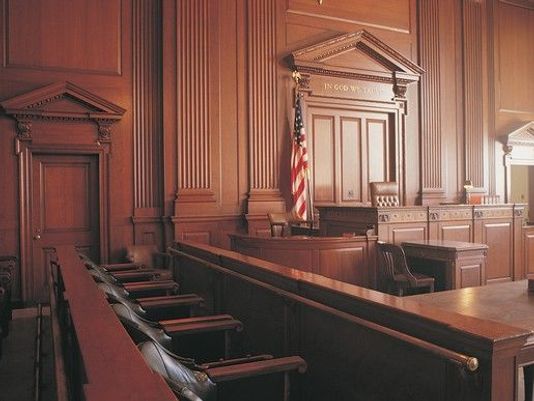The Portland City Council adopted a slate of new polices allows tenants to pay security deposits in installments
The Portland City Council on Wednesday adopted a slate of new polices intended to make landlords more forgiving of criminal records and poor credit when screening prospective tenants.
The ordinance also allows tenants to pay security deposits in installments over three months.
The Portland City Council on Wednesday adopted a slate of new polices intended to make landlords more forgiving of criminal records and poor credit when screening prospective tenants.
The council voted 3-1 to approve what its champion, Commissioner Chloe Eudaly, called the most comprehensive reform of its kind in the country. Commissioner Amanda Fritz cast a “no” vote; Commissioner Jo Ann Hardesty was absent, though she expressed support Wednesday on her Facebook page.
 A companion measure that requires landlords to more throughly account for security deposit funds withheld for repairs passed along the same line. That ordinance also allows tenants to pay security deposits in installments over three months.
A companion measure that requires landlords to more throughly account for security deposit funds withheld for repairs passed along the same line. That ordinance also allows tenants to pay security deposits in installments over three months.
The policy, which will take effect in March, is intended to increase access to housing for people who have been locked out of the conventional market because of years-old convictions or financial defaults. It’s doubly needed in a city where affordable rentals are in short supply, Eudaly said.
Long-standing federal fair housing laws that bar discrimination against protected classes such as race, sex and familial status don’t go far enough, Eudaly said. Red flags used by the rental housing industry to weed out problem tenants aren’t an accurate predictor of whether the renters would miss payments or violate their lease, she said.
“Research and data have laid a solid foundation for the decisions we made,” she said.
Fritz, the lone dissenter on the council, said she agreed with the goals of ending the disparate treatment of non-white renters revealed in years of fair housing audits conducted by the city.
But she went on to raise concerns about the lack of exemptions for violent crimes. And she said the policy as written would push landlords to sell their properties and developers to build outside of the city, ultimately pushing rents higher.
“Many people can no longer afford to rent in Portland,” she said before casting her vote. “This policy not only doesn’t solve for this problem, it may exacerbate it.”
The ordinance sets “low-barrier” screening criteria for landlords to use when they evaluate a renter’s application. It would limit checks to felony convictions within the past seven years and misdemeanors within the last three years. Renters wouldn’t be rejected for credit scores below 500, a court eviction order older than three years or insufficient credit history.
Landlords also can use their own criteria, but they must then provide written justification for denying a rental application.
Landlords have said few would choose the low-barrier screening criteria because it could put their property or other tenants at risk. But the alternative — providing written justification — will add to their administrative costs and push some landlords out of the business, they said.
In all cases, the policy would require landlords to advertise vacancies 72 hours before they begin accepting applications and to evaluate applications in the order they’re received.
And they can’t require tenants to earn more than two-and-a-half times the monthly rent in income. Many landlords today require renters to make three times the monthly rent.
The official rules for the policy will be drafted by the Portland Housing Bureau, which will also provide an annual report on whether the rules are working as expected. Council members who supported the policy said the city would put on a robust effort to inform landlords and tenants alike of the new rules before they take effect.
The new rules add to a litany of renter protections and housing regulations put in place by the city and the state government in recent years.
Portland in 2016 mandated that developers of new apartments include rent-restricted units. In 2017 it began to require landlords to pay thousands of dollars to renters who move because of big rent increases or evictions without cause, a policy that remains the subject of a legal challenge.
This year, the state capped rent increases at 7 percent plus the rate of inflation and it banned landlords from evicting tenants without stated cause. In the cases where tenants can be evicted without violating their lease — to remodel or sell the home, for example — the landlord would have to pay the tenant one month’s rent to offset the cost of moving.




 From July 1, Florida Supreme Court justices with permanent homes outside Leon County will be able to request a district court of appeal courthouse, county courthouse or other facility as their official headquarters, under
From July 1, Florida Supreme Court justices with permanent homes outside Leon County will be able to request a district court of appeal courthouse, county courthouse or other facility as their official headquarters, under 

 Disputes between landlords and tenants often arise over issues such as the length of the lease, the amount of rent to be paid, maintenance, repair and replacement obligations, size of the space to be provided, and what services are to be delivered. Challenges can also surface as a result of corollary issues such as renewal and purchase options, rights of first refusal and accommodations required by lenders. NationalEvictions has the top attorneys with extensive experience in representing both landlords and tenants of Residential, Commercial and Industrial properties.
Disputes between landlords and tenants often arise over issues such as the length of the lease, the amount of rent to be paid, maintenance, repair and replacement obligations, size of the space to be provided, and what services are to be delivered. Challenges can also surface as a result of corollary issues such as renewal and purchase options, rights of first refusal and accommodations required by lenders. NationalEvictions has the top attorneys with extensive experience in representing both landlords and tenants of Residential, Commercial and Industrial properties.

 The Chicago Residential Landlord and Tenant Ordinance provides explicit self-help remedies that tenants should use when they discover defective conditions in their apartments. It is essential to contact an attorney to begin using these remedies, but because there exists the possibility of legal action by the landlord, tenants should document and keep records of their activities.
The Chicago Residential Landlord and Tenant Ordinance provides explicit self-help remedies that tenants should use when they discover defective conditions in their apartments. It is essential to contact an attorney to begin using these remedies, but because there exists the possibility of legal action by the landlord, tenants should document and keep records of their activities.









